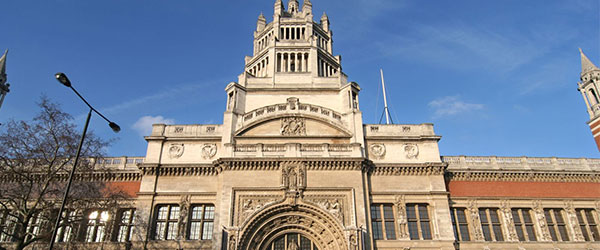

Tristram Hunt, former shadow education secretary and now Director of the Victoria and Albert Museum, spells out what they are doing to support high-quality design and cultural education
‘The Victoria and Albert Museum should be a schoolroom for everyone.’ So declared the museum’s first director, Sir Henry Cole, and in doing so firmly cemented teaching and learning at the heart of the institution. The museum’s founding principles are rooted in supporting the development of British design and nurturing future talent.
Today, that founding mission has never been more important. The creative industries are one of the UK’s greatest recent success stories, worth a phenomenal £10 million an hour to the economy. Our car, fashion, film and gaming industries are world leaders.
The UK’s creative industries are worth £10 million an hour to the economy
But are we set to put all of that at risk? At a moment when Britain is forging a new place in the world, we need brilliant art, design and technology education to help young people develop skills for the future economy. However, the current focus on limiting attainment to Ebacc subjects, combined with funding cuts and reduction of teacher training, risk exacerbating the already serious skills crisis facing the country.
Declines in exam entries and teacher trainees
New data on the summer 2017 GCSE exam entries show that candidates for GCSE arts subjects dropped by 46,000 since last year (9%). Even worse, the number of teacher trainees predicted for design and technology has fallen 11%, from 848 in 2016-17 to 751 next year.
Earlier this year the Cultural Learning Alliance published a report, Imagine Nation, underlining the value of creative learning. It states: ‘To limit young people’s access to the full range of cultural experience is to disenfranchise a generation. They will be intellectually poorer, emotionally more limited, and socially more isolated, lacking the skills that are learned through creativity and collaboration.’
Taking all this into consideration, museums and other cultural organisations should play an essential role in children and young people’s education. Museums’ objects combined with innovative learning programmes can be used to contextualise understanding of the world through discovering what came before, from a political, social and aesthetic point of view. Learning from the creative solutions of the past can help solve the problems of the future.
Museums working together on design projects
This is why, to complement existing V&A schools initiatives, we have launched DesignLab Nation, a programme of in-depth design projects in partnership with other museums around the country. Working with Culture Coventry and Blackburn Museum in the first year starting this September, the programme will expand to Sheffield and two additional locations in the following academic year.
The V&A will lend its collections, help recruit schools and designers, develop each project with the local museum and provide a comprehensive programme of training and professional development for teachers. The programme will contribute to high-quality design education for key stage 3 and 4 students at a time when the UK is looking for the next generation of creative designers and innovators.
Lending collections, developing projects with local museums, and providing training for teachers will contribute to high-quality design education for KS3-4 students
Students will get the chance to engage with historical and contemporary design, work directly with professional artists and designers and connect with learning across the curriculum, including STEAM and local history. They will develop creativity, skills and knowledge relevant to working in the creative industries, and get advice about different pathways into creative careers.
Collectively schools, museums and cultural organisations can provide the education that our young people need and deserve.
SSAT hosts an annual series of discussion roundtables, to which a number of politicians, policymakers, thinkers, academics and SSAT member school leaders are invited. These discussions and debates have been collated into a publication Schools at the Heart of Educational Reform; available to all SSAT members digitally. Please read more about the debate about the future of arts education in England and the impact of the English Baccalaureate (EBacc) on pages 57 – 65.
